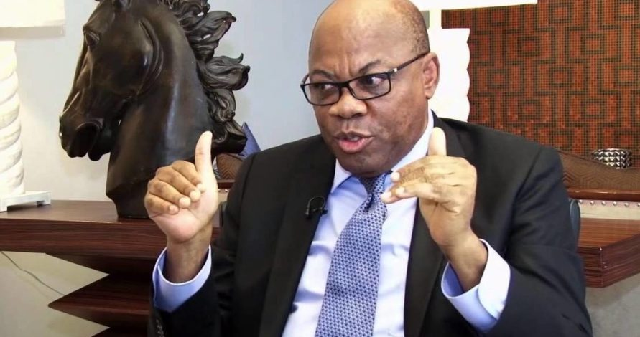A former President of Nigerian Bar Association (NBA) and Senior Advocate of Nigeria (SAN), Mr. Olisa Agbakoba, Wednesday in Lagos slammed the federal government for failing to tap into the huge potential of the maritime sector, stressing that if the Cabotage law alone is well applied, the federal government would earn over N4 trillion annually in revenue.
He stated this in an interview with journalists on the sideline of focus group meeting themed: ‘Shipping Policy: A Catalyst for Maritime Growth,’ put together by the Nigerian Chambers of Shipping.
Agbakoba, who also described Nigeria as technically insolvent because it has a huge liability compared to its assets, said the country is technically challenged because the federal government has failed to tap into the enormous potential in the maritime sector to turn its fortunes around.
According to him, “Nigeria is technically challenged. Nigeria is what econometrists call a technically insolvent country because if you line up our assets and our liabilities, the government cannot pay. If consultants are called to look around, they will say, ‘these guys are not insolvent they are just stupid.’ So, we need to have people in government that will understand that this is a sector that is bleeding. Once they understand it, you will see what will happen.
“If Cabotage law is well applied, it will give Nigeria over N4 trillion in revenue. Transportation is a huge business. Why do you think the President of the United States of America, Donald Trump is changing American trade policy? Actually, it is with the maritime sector that you wrap around policy. If ever I am opportune to be Nigeria’s president, I am going to hike up the entire tariff because Nigeria is a dumping ground in anything.”
Agbakoba also urged the government to ensure that all government procurements are bound to be carried on Nigerian vessels.
He added: “When I was reading all the various laws relating to cargo movement, let us just take Bonga; when a Nigerian government signs a Production Sharing Contract (PSC) with an International Oil Company (IOC), all they see is a barrel of oil. They don’t see the 34 by-products. I can name four: shipping, insurance, banking and law. That is why we are fighting for Free on Board (FOB) to be scrapped for PIF.
“IOCs like Shell are so happy with what is currently obtainable. For them, the government only sees the price of crude oil. Who carries our crude? No Nigerian company currently carries Nigeria’s crude, which is the problem. We have a procurement policy that disfavour Nigerians. If you just talk about procurement and cargo movement you are looking at about 100 vessels and work. We need to have a trade policy that takes into account economic nationalism. A technically insolvent can only survive like this.”
On what the government can do to harness the sector’s potential, he said the government must first have a high policy level player, adding: “The policy level player in government that oversee shipping today is the director of maritime services. It is way too low and he is in a small department, which is why I call for a minister for shipping because you have a minister for aviation.
“But I also see the point that it might also be too disparate, in that case, we need an integrated Ministry of Transportation, which will include roads, rail, shipping and aviation. It should be just like the UK where the Secretary of Transportation has four Under Secretaries with each of them running a sector. If maritime is not even mentioned in the government’s Economic Recovery and Growth Plan (ERGP) then you can imagine.
“The problem with shipping is that it is invincible; it is not like a bank that you will see its building, which is the problem I have discovered in the last 40 years I have been in the maritime sector. People don’t remember it but it is a huge industry.”
On the lack of policy direction and what is needed to be done, he said Nigeria has to build the building blocks first.
He said: “Without the government realising that this is a big sector we are going nowhere. They simply have to realise that the shipping sector is huge. When they realise it then they start asking, ‘how do we get it done?’ That is when the experts will come in. Right now you can see that we are even struggling to be noticed in an economy that is bleeding.
“The Nigerian maritime industry can generate N7 trillion annually because of its huge potential and as you know Nigeria is challenged in terms of its fiscal responsibilities and unemployment.
“From the discussion here you can see that the potential is so huge. Ghana is now taking over from Nigeria as the shipping hub, even in the aviation sector, because I work in both sectors. Togo is now the hub for airlines like Emirates. How is it that a country of 180 million people lead by a so-called government can’t see the potential and yet we talk about poverty? The maritime sector can turn the Nigerian economy around but is the government showing enough interest? The government has to create the enabling environment.”
Source: THISDAY












